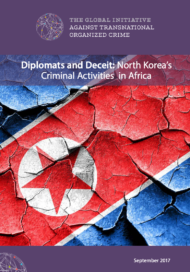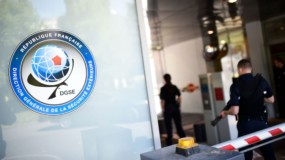Event Details
Where
Lee Kuan Yew Conference Room, Arundel House, 13–15 Arundel Street, Temple Place, London WC2R 3DX
Posted on 17 Apr 2017
This event from the IISS and the Global Initiative against Transnational Organized Crime followed a recent US National Defense University project on the emergence, over the past ten years, of a ‘highly adaptive and parasitic’ criminal ecosystem. Panellists explored its consequences for national security, state fragility and the global order.
The discussion addressed a host of questions, including: what is the role of social media in bolstering the appeal of anti-state actors, allowing them to establish ‘cult-like’ followings? To what extent are jihadist networks increasingly a part of the drug-smuggling business in West African ‘protection economies’? How is the growing grey space between licit and illicit commerce explored by global counterfeit and smuggling networks? And how have technological innovations, which have made our lives and work so much easier, produced disconcerting vulnerabilities in the cyber domain that are increasingly being exploited by criminal groups, terrorists and hostile states alike?
Michael Miklaucic is the Director of Research, Information and Publications at the Center for Complex Operations (CCO), National Defense University. He is also the Editor of PRISM, the journal of CCO. Prior to this assignment he served in various positions at USAID and the Department of State, including Chief Operating Officer for the USAID Office of Democracy and Governance, and Rule of Law Specialist in the Center for Democracy and Governance. From 2002–03 he served as the Department of State Deputy for War Crimes Issues.
Mark Shaw is Director of the Global Initiative against Transnational Organized Crime, and a Senior Visiting Fellow at the LSE Ideas International Drug Policy Project. He was previously the National Research Foundation Professor of Justice and Security at the University of Cape Town, Department of Criminology. Prior to joining UCT, Mark was a director at a boutique consulting firm specialising in fragile states and transnational threats. Mark worked for ten years at the United Nations Office on Drugs and Crime, following a number of governmental and civil society roles in South Africa.
Tuesday Reitano is Deputy Director at the Global Initiative against Transnational Organized Crime and a senior research advisor at the Institute for Security Studies in Pretoria, where she leads five organised crime observatories in Africa. Tuesday was formerly the director of CT MORSE, an independent policy and monitoring unit for the EU’s counter-terrorism programmes, and for 12 years was a policy specialist in the UN System, including with the UN Development Programme, the UN Development Group and the UN Office on Drugs and Crime.
Hilary Matfess is a Research Analyst and Senior Programme Officer at the Center For Democracy and Development in Abuja, Nigeria. She is also a Visiting Fellow at the Institute for National Security Studies at the National Defense University, a freelance journalist, and a contributor to the Nigeria Social Violence Project at the John Hopkins University School of Advanced International Studies. She works on issues of security and governance in sub-Saharan Africa. Her book on gender and Boko Haram is forthcoming with Zed Books.
This event was chaired by Nigel Inkster, Director of Future Conflict and Cyber Security, IISS.



